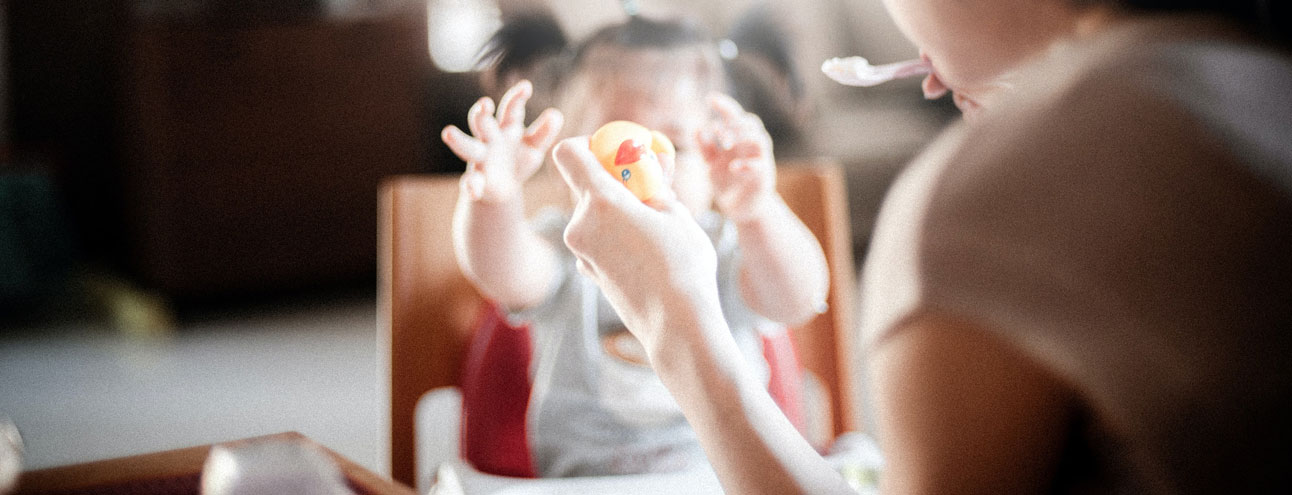‘How much should my child eat?’ It’s a question many parents are struggling with. The answer I want to suggest in this article will not be in grammes, though. I believe that, while you decide what’s for breakfast, lunch or dinner, it’s your baby, toddler or preschooler who decides how much he eats. That’s why the joyful bunny on our packaging is accompanied by the note: ‘This package contains 190 g. Too much for your little one? That’s perfectly fine.’ Let’s dive into why you should have faith in your child when it comes to deciding how much he eats.
Born with healthy habits
Your child came into the world with healthy habits, like indicating ‘I’m hungry’ by putting his fist into his mouth, or letting you know ‘I’ve had enough’. (If you breastfeed, you have no way of knowing how much milk your baby has had when he stops drinking, and that’s totally ok.) These are natural skills that we should encourage rather than discourage. Your little one knows well enough how much he wants to eat. Enough is enough, and there’s no need to force anything.
Then a little less, then a little more
It’s always a good idea to monitor how much your child eats over a longer period of time (a week, for instance). You’ll notice that, if he eats a little less one day, he’ll make up for it by munching a little more later that week. You don’t eat exactly the same amounts of food every day either, right?
Hungry as a horse, or not so much?
There are a lot of factors that will determine just how hungry your child is, like:
- growth
When your baby is going through a growth spurt, he will probably need more food. - physical activity
Has your child been playing or running around all day? Then it should come as no surprise that he’s craving more food than when he’s been sleeping for hours on end. - energy level
Is your child bursting with energy, or perhaps a little tired or ill? This will also affect the size of his preferred portions. - your child
Every child is unique, and some kids just eat more than others. It might be tempting to compare your little one to children of the same age, but ultimately this will neither stimulate your son or daughter, nor make you happy as a parent.
Your paediatric dietician or paediatrician will know what to do
If your son or daughter is happy, playful and growing well, you can rest assured that he or she is getting all the necessary nutrients. Are you nevertheless worried? Don’t hesitate to get in touch with your paediatric dietician or paediatrician to sort things out. In any case, try to avoid tensions at the table. Breakfast, lunch and dinner should be fun and cosy get-togethers, not a reason for tantrums.
I’d like to conclude by quoting Rolinde Demeyer, a paediatric dietician who had some interesting things to say on the subject: “When we feel like a child isn’t eating enough, a primal instinct kicks in. We become worried that our child is not getting everything he needs. And that’s perfectly normal.” Yet, she adds: “Trust your child. One of the greatest gifts you can give them is to let them hold on to their own feeling of fullness.”
Bon appetit, and enjoy each other’s company!

